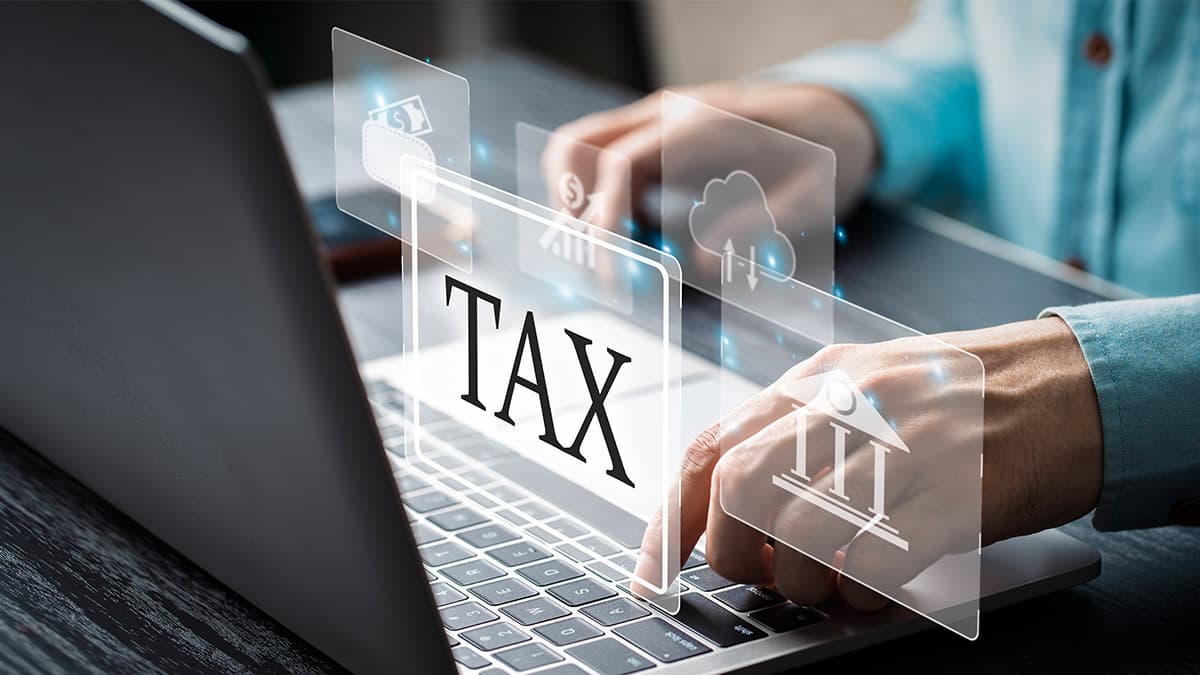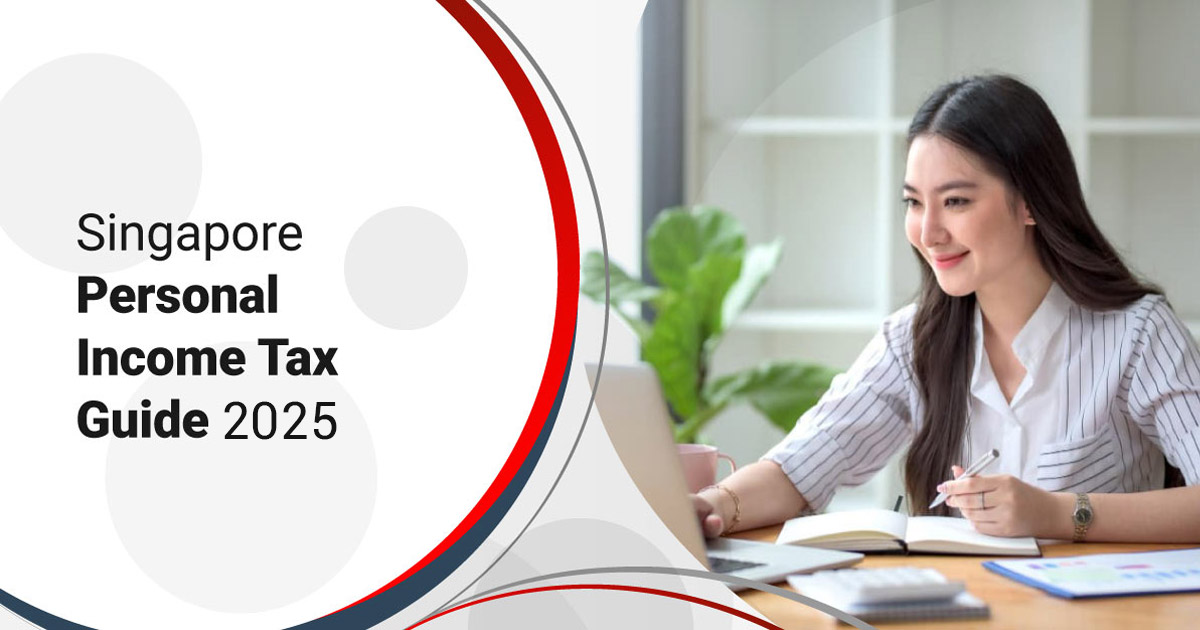
Singapore’s personal income tax rate is one of the lowest in the world. It is the key component of the country’s tax system. Thereby, to determine how much income tax an individual owes, you first need to establish whether they’re considered a tax resident and calculate their chargeable income. Then, you apply the progressive resident tax rate to that amount.
This blog will provide a detailed overview of the Singapore personal income tax 2025. It will help individuals determine their income tax liability by understanding their tax residency status, applicable tax rates, and tax exemptions.
Personal Income Tax for Singapore Residents
Singapore residents are taxed on their income, and overseas income is remitted to this country. Tax rates are progressive, meaning a higher-income earner must pay taxes pegged to higher rates.
You will be considered a tax resident for a specific Year of Assessment (YA) if you are:
- A Singapore Citizen or Singapore Permanent Resident residing in this country, except for temporary absences or
- A foreigner who has stayed or worked in Singapore:
- For at least 183 days in the preceding calendar year or
- Continuously for 3 consecutive years, even if the stay in Singapore may be less than 183 days in the first or third year or
- A foreigner who has worked in Singapore for a continuous period spanning 2 calendar years, with a total stay of at least 183 days. It applies to employees entering this country but excludes company directors, public entertainers, or professionals.
Starting from YA 2024, the top marginal personal income tax rate has risen to enhance progressivity. Income exceeding S$500,000 up to S$1 million will be taxed at 23%, while income over S$1 million will be taxed at 24%, up from the current 22%.
The personal income tax rates for residents from YA 2024 onwards are:
| Chargeable Income | Income Tax Rate (%) | Gross Tax Payable ($) |
|---|---|---|
| First S$20,000 Next S$10,000 |
0 2 |
0 200 |
| First S$30,000 Next S$10,000 |
– 3.50 |
200 350 |
| First S$40,000 Next S$40,000 |
– 7 |
550 2,800 |
| First S$80,000 Next S$40,000 |
– 11.5 |
3,350 4,600 |
| First S$120,000 Next S$40,000 |
– 15 |
7,950 6,000 |
| First S$160,000 Next S$40,000 |
– 18 |
13,950 7,200 |
| First S$200,000 Next S$40,000 |
– 19 |
21,150 7,600 |
| First S$240,000 Next S$40,000 |
– 19.5 |
28,750 7,800 |
| First S$280,000 Next S$40,000 |
– 20 |
36,550 8,000 |
| First S$320,000 Next S$180,000 |
– 22 |
44,550 39,600 |
| First S$500,000 Next S$500,000 |
– 23 |
84,150 115,000 |
| First S$1,000,000 In excess of S$1,000,000 |
– 24 |
199,150 |
Singapore Non-Residents Personal Income Tax
- Non-residents are foreigners who have stayed or worked in Singapore for less than 183 days in a calendar year.
- They are taxed only on their income in Singapore and are not included in the taxable income. They are subjected to tax at a flat rate of 15% or progressive resident tax rates as per the table above, which results in a higher tax amount.
- Note that the non-resident personal income tax rate for director’s fees, consultation fees, and other income is presently at 24%. This excludes employment income and certain income taxable at reduced withholding tax rates.
Important Note: Starting from YA 2024, non-resident individuals (excluding employment income and certain income taxed at lower rates) income tax rate has been increased from 22% to 24%. This change aims to align the income tax rates for non-residents with those for residents.
Tax Deductions and Exemptions in Singapore
Tax exemptions and deductions can help to lower residents’ tax liability. Residents are eligible for various tax exemptions and deductions, such as:
- Personal reliefs
- Deductions for employment expenses
- Contributions to approved charitable or social causes
Non-residents do not qualify for most of these exemptions and deductions. There are also some groups of individuals who are exempted from personal income tax. These include:
- Non-resident individuals whose employment is for not more than 60 days in a calendar year:
- Non-resident individuals in Singapore employed for a short period of not more than 60 days in a calendar year are exempt from paying personal income tax on their employment income.
- Individuals who receive certain types of income that are exempted from tax:
- Some types of income are exempted from personal income tax in Singapore. These include certain types of:
- Government grants
- Scholarships and awards
- Certain gains from the disposal of investments
- Certain income earned by approved charitable or religious organisations
- Some types of income are exempted from personal income tax in Singapore. These include certain types of:
Even if individuals fall under one of these exempt categories, they may still be required to file a tax return in Singapore to report their income. Other taxes, such as Goods and Services Tax (GST) and tax levied on rental income, may apply.
Related Read: 14 Strategies to Reduce your Personal Income Tax »
Withholding Taxes on Income of Non-Resident Individuals
Non-resident individuals are subject to withholding tax on certain income when it’s due and receivable. The applicable withholding tax rate depends on the type of income and the Year of Assessment (YA).
| Income Type | Withhold Tax Rate form 2024 Onwards | Withhold Tax Rate from YA 2017 to YA 2023 |
|---|---|---|
| Compensation, which includes director’s fees, received by non-resident director | 24% | 22% |
| Earnings obtained by non-resident professionals for services given in Singapore | Gross income: 15%
Net income: 24% |
Gross income: 15%
Net income: 22% |
| Earning of non-resident public entertainers | Concessionary rate: 15% | Concessionary rate up to 31 Mar 2022: 10% Concessionary rate from 1 Apr 2022: 15% |
| SRS withdrawals received by non-Singaporean | 24% | 22% |
| Payment related to interest, commission, loans, or debts | Final withholding tax rate reduced to 15% (conditions apply)
Otherwise taxed at 24% |
The final withholding tax rate is either 15% (subject to conditions) or 22% if the reduced rate does not apply. |
| Royalties or lump sum payments for using movable properties | Final withholding tax rate reduced to 10% (conditions apply)
Otherwise taxed at 24% |
Final withholding tax rate reduced to 10% (conditions apply)
Otherwise taxed at 22% |
Singapore, an Attractive Tax Haven
In conclusion, Singapore has a simple and efficient personal income tax system, which is attractive for residents and non-residents. Tax residents are taxed on their income obtained in Singapore and overseas, while non-residents are taxed only on their income earned in Singapore.
The personal income tax in Singapore for residents is progressive, with higher-income earners paying a higher tax rate, while the tax rates for non-residents are flat.
As Singapore continues to uphold its reputation as a global financial hub, staying informed about tax regulations remains essential for everyone involved in its economy.
Contact our team
Frequently Asked Questions About Personal Income Tax in Singapore
How do I determine my personal income tax in Singapore?
- Your personal income tax is influenced by certain factors, including your:
- Tax residency
- Chargeable income
- Personal income tax rates
- Applicable tax exemptions
What are some types of non-taxable income in Singapore?
- These types of income are not taxed in Singapore:
- Capital gains tax
- Shipping income as specified under Section 13A and Section 13E of the Income Tax Act 1947
- Foreign-sourced dividends, service income, and branch profits obtained by a resident firm under Section 13(8)
How do I declare personal income tax in Singapore?
- You can either file your income tax electronically or engage an income tax expert to help you do so and remove the hassle of doing it yourself.




